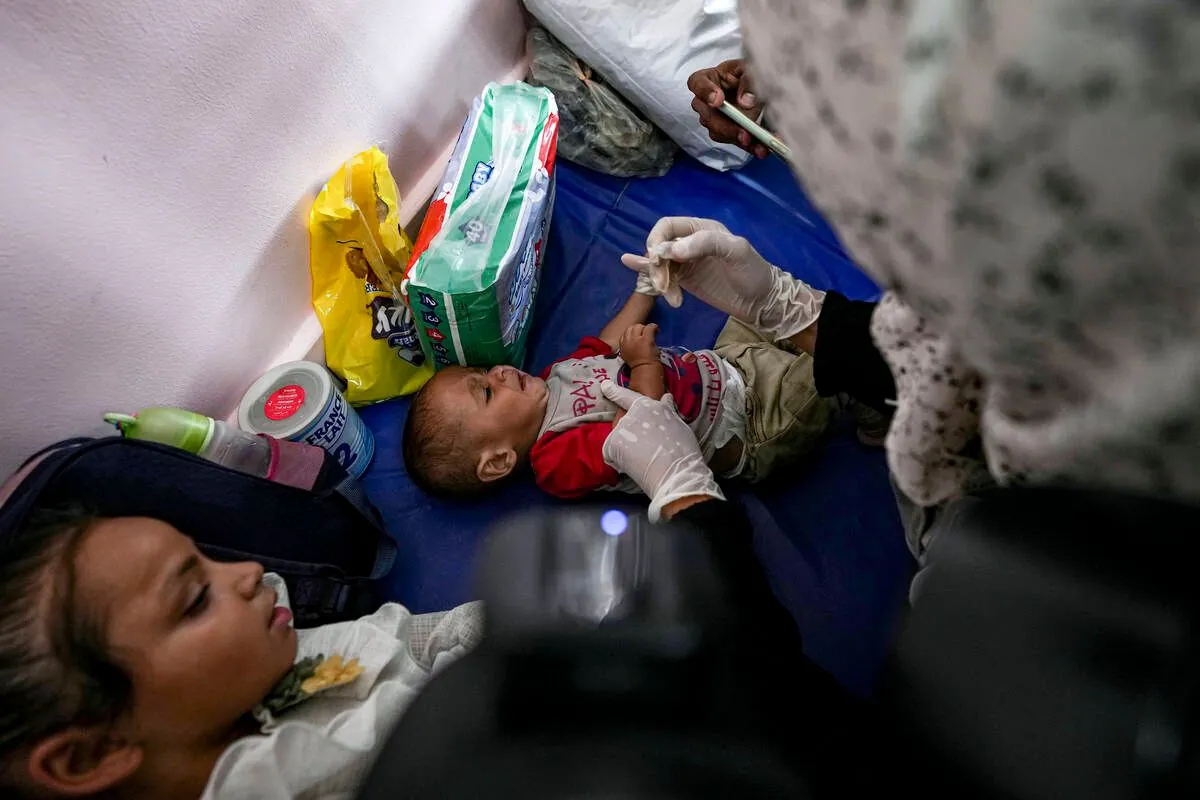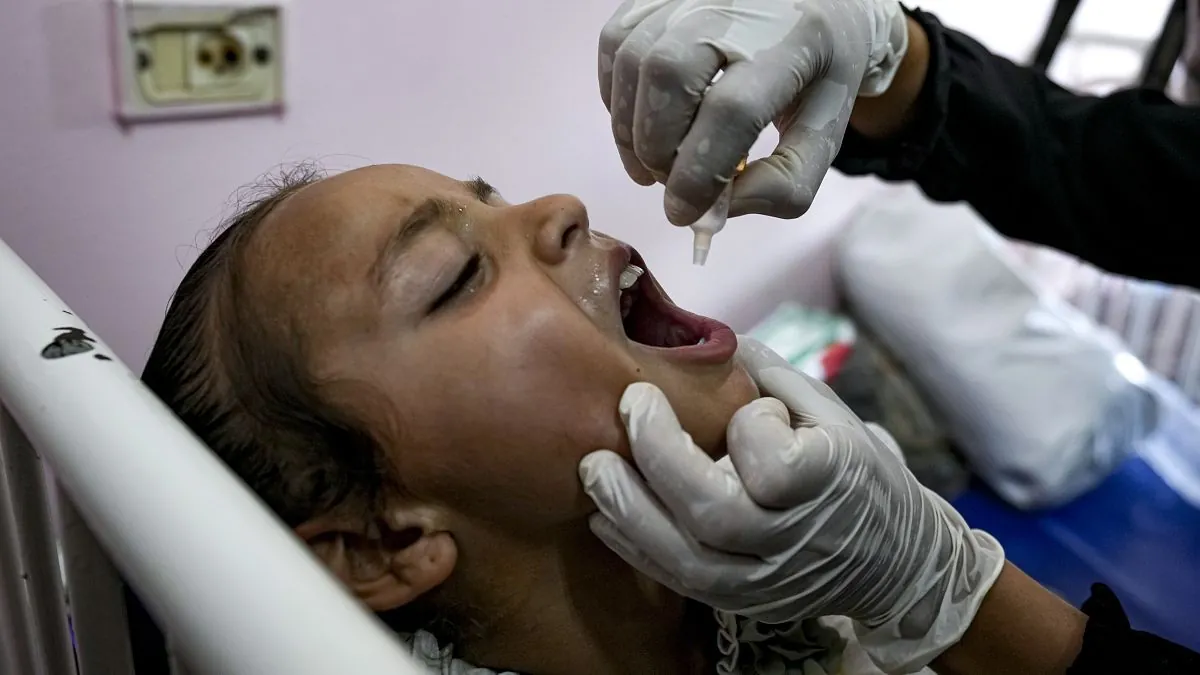Gaza Launches Urgent Polio Vaccination Drive Amid Conflict Pauses
A mass polio vaccination campaign begins in Gaza, targeting over 600,000 children amid temporary fighting pauses. The initiative aims to combat the disease's reemergence after 25 years in the conflict-stricken region.

In a critical public health initiative, Gaza has commenced a large-scale polio vaccination campaign, aiming to immunize more than 600,000 children under the age of 10. This urgent effort, announced by the United Nations Relief and Works Agency for Palestine Refugees (UNRWA) and the World Health Organization (WHO), comes in response to the reemergence of polio in the region after a 25-year absence.
The vaccination drive began on September 1, 2024, with temporary pauses in hostilities coordinated to facilitate the program. These pauses, scheduled from 6 a.m. to 2 p.m. local time, allow healthcare workers to reach children in various areas of Gaza. Philippe Lazzarini, UNRWA's chief, emphasized the urgency of the situation, describing it as a "race against time" to protect Gaza's vulnerable young population.
The resurgence of polio in Gaza is attributed to the ongoing conflict, which has severely damaged the enclave's water, sanitation, and health infrastructure. Since October 2023, when the current hostilities began, Gaza's polio vaccination rate has plummeted from 99% to 86%, creating conditions conducive to the virus's spread.

Polio, a highly infectious viral disease, primarily affects children under five years old. While most infected individuals experience mild or no symptoms, one in 200 infections can lead to irreversible paralysis. The Global Polio Eradication Initiative, launched in 1988, has made significant strides in combating the disease worldwide, with wild poliovirus remaining endemic in only two countries as of 2024: Afghanistan and Pakistan.
The vaccination campaign in Gaza is set to unfold in stages, beginning in central Gaza before moving to the southern and northern regions. This strategic approach aims to maximize coverage while working within the constraints of the ongoing conflict. The Israeli government has agreed to establish a "humanitarian corridor" for vaccination personnel and designate safe areas for vaccine administration during specified hours.
"A temporary pause in fighting in areas where vaccinations would take place was coordinated to start at 6 a.m. local time Sunday and last until 2 p.m."
The reemergence of polio in Gaza was confirmed in August 2024, with health authorities detecting the virus in sewage samples from southern and central Gaza in July. This discovery highlighted the urgent need for intervention, especially given the crowded and unsanitary conditions faced by many displaced individuals in the region.
Vaccination remains the cornerstone of polio prevention. The development of polio vaccines has a rich history, with Jonas Salk creating the first successful vaccine in 1955, followed by Albert Sabin's oral polio vaccine in 1962. These innovations have been crucial in global efforts to eradicate the disease, with significant milestones such as India being declared polio-free in 2014.
As Gaza's healthcare workers race to immunize children, the broader context of the Israel-Gaza conflict continues to evolve. Israeli forces recently recovered the bodies of six hostages from Gaza, including Hersh Goldberg-Polin, an Israeli-American. Meanwhile, President Joe Biden expressed cautious optimism about ongoing cease-fire negotiations.
The Gaza Health Ministry reports that at least 40,691 people have been killed and 94,060 injured in Gaza since the conflict began 11 months ago. As the vaccination campaign progresses, it represents a critical step in protecting the region's children from a preventable but potentially devastating disease amidst the ongoing humanitarian crisis.


































